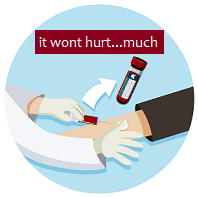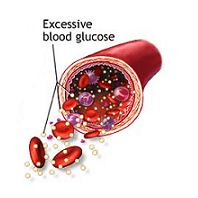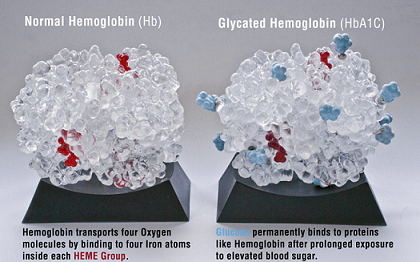Whole Body Health checkup – A 360
Degree View of what you need to know
The need for a Whole Body Health checkup has never been more important. Statistics coming in over the years has show a tremendous increase in sudden death. This is about to change, we got
your back.

We are Meditest, a medical checkup facility available all over India including Delhi, we are here to answer all your questions, to make sure you are not among the stats.
- Identifying risk factors and early signs of disease and
- Preventing future illness by early intervention
These are the major importance of a Whole Body Health checkup. Periodic Health Examination or as it is normally known Whole Body Health checkup should include counselling, immunization and physical examination according to the patient’s age and gender.

Its funny how Periodic Health Examination came to be. Let have a look at the historical
perspective of a Whole Body Health checkup.
In the 19th century, Horace Dobell a British physician outlined an argument for the periodic examination of healthy persons. In his words, a Whole Body Health checkup could be a way to identify “these earliest evasive periods of defect in the physiological state, and to adopt measures for their remedy”. Life insurance company were the most interested with the aim of reducing the risk of death. blood and urine tests, medical imaging and electrocardiograms were the first form of test carried out in a Whole Body Health checkup.
Well things have change now. Here at Meditest we incorporate an array of tests into our full body check up. We do this with our beloved clients in mind.
Element of a Whole Body Health checkup

Counseling

Immunization

Examination
In addition to these we also have “case finding”, which involves screening based on the patient’s known risk factors in the context of a concomitant disease (e.g., hypertension) or a positive family history (e.g., premature coronary heart disease in a first-degree relative).
Here at Meditest, we are e aware of “hidden agendas”, as patients use Whole Body Health checkup as a reason for consultation to raise the issue of a specific problem that troubles them.
Counselling and Immunisation are the
“cornerstones of primary prevention … when compared with secondary or tertiary prevention, these preventive measures are harmless, and they have been shown to be clearly more cost-effective”
For this reason, in Meditest, evidence-based primary prevention has become a part of our Whole Body Health checkup for all patients.
Screening test are designed to identify a disease among asymptomatic individuals. We follow WHO principles of screenin test. this include;
- First, the condition should be a relevant health issue and include a latent phase where validated tests can be performed.
- The screening tests have to be not only economically acceptable but also in terms of balance of benefits and harms for the population.
- Finally, there should be an available and validated treatment for the diagnosed condition.
What makes Meditest standout is the choice of screening test that we adopt. Our Screening Test are also inline with international conventions, they include;
The Kidney Function Test
Anyone can have a kidney kidney disease at any time, this is why it is important to get tested, this is why it is important to know your kidney numbers.
To know the state of ones kidney, two test are carried out;
Urine Test called ACR(albumin-to-creatinine ratio).Albumin is a protein that is produce in the liver, it prevents leaking of fluid from the bloodstream to other organs. The body needs protein alright but not in the urine, NO! The result of this test tell whether the kidney is able to filter the blood well enough. A positive result over three months is a sign of kidney disease.
Blood Test to estimate your GFR(glomerular filtration rate).Creatinine is a waste product produced by muscles from the breakdown of a compound called creatine. Its is filtered by the kidney, when the kidney has problem, it can no longer carry out this function. Testing for creatinine is just the first step, result from this step is inputed into this equation to get the glomerular filtration rate:

This number tells our professionals at Meditest how well your kidney are working.
About the stats. we were talking about. It might interest you to know that:
1 in 7 a developed country like the USA has chronic kidney disease.
1 of 2 adults aged 30 64 is expected to develop chronic kidney disease in his or her lifetime.
The prevalence of CKD is growing most rapidly in people ages 60 and older.
source:http://ukrocharity.org/kidney-disease/kidney-disease-statistics/
The Liver Function Test
No single single biochemical test can be sufficient to fully estimate the funtion of the Liver since the Liver performs a lot of biochemical,synthetic and excretory functions.
At We employ a battery of tests for initial detection and management of liver Meditest, diseases and these tests are frequently termed “Liver function tests”.
Frequently used terms
Serum bilirubin, urine bilirubin, Aminotransferases, alkaline phosphatase, Serum
proteins, albumin, prealbumin, serum ceruloplasmin.
More on these here
Uses of Liver Function Test
- It Provides sensitive screening modality for liver dysfunction.
- The are helpful in identifying the pattern of liver disease.
- The are helpful in accessing the severity and also in predicting the outcome of liver disease.
CLASSIFICATION OF LIVER FUNCTION TESTS
Tests of the liver’s capacity to transport organic anions and to metabolize drugs
Tests that detect injury to hepatocytes (serum enzyme tests)
Tests of the Liver’s biosynthetic capacity

This looks like an healthy heart RIGHT. Well we are about to tell you the what we do in our lab to help make sure your heart stays this way.
To help prevent future Cardiovascular disease, our professionals perform some series of tests, they include;
The Lipid Profile
Our Lipid profile compasses the following arrays;
total cholesterol, DL-cholesterol, triglyceride, calculated LDL
To carry out a Lipid Profile, the Ortho Vitros Clinical Chemistry system 950IRC instrument, which uses thin film technology is used to quantitatively measure lipid levels via a colorimetric reaction.
Screening for cholesterol disorders is recommended every five years for men aged thirty-five years or older and for women with cardiovascular risk factors aged forty-five years or older
Diving down into the technicality
Cholesterol is measured using a colorimetric reflectance spectrophotometric method.
- Normal ranges for adults are Desireable : < 200 mg/dL
- Borderline: 200 239 mg/dL
- High Risk: => 240 mg/dL
- Borderline: 200-239 mg/dL
Direct HDL Cholesterol is assayed by colorimetric reflectance spectrophotometry
after samples are treated with phosphitungstic acid/magnesium chloride to precipitate HDLs and non-HDLs.
- Normal ranges for adults are Highly Desireable: > 60 mg/dL
- Desireable: 35-60 mg/dL
- High Risk: < 35 mg/dL
LDL Cholesterol is calculated thus;
Total Cholesterol – {HDL + (Triglycerides/5)}
- Normal ranges for adults are Desireable : < 130 mg/dL
- Borderline: 130-159 mg/dL
- High Risk: => 160 mg/dL
Triglyceride is also measured by colorimetric reflectance spectrophotometry.
- Normal ranges for adults are Desireable : < 150 mg/dL
- Borderline: 150-199 mg/dL

We are here so that you would not need to go through the stress of analyzing and trying to solve this puzzle all alone. We are here for you.
Diabetes
Meditest Glycated haemoglobin is the most accepted measure of chronic glycaemia correlates with the development of specific diabetes complications. An HbA1c of 48 mmol/mol (6.5%) or is now recommended for diagnosis of type 2 diabetes. HbA1c has greatly simplified disgnostic pathway turning professionals away from oral glucose tolerance test. However, many clinical l situations can impact on the HbA1c assay, we at Meditest are aware of these and take them into consideration
Diabetes results from elevated blood glucose and its diagnosis has traditionally been estabished by measuring blood glucose. The modern diagnosis of diabetes has therefore been based on blood glucose criteria associated with the development of retinopathy. Over time, these blood glucose criteria have changed as the understanding of their relationship to retinopathy has improved.
In testing for Diabetes, two kind of test can be opt for;
Blood Glucose testing
Research has indicated that blood glucose testing has a limited benefit for many patients who do not take insulin to manage their diabetes. It has quite a few short coming and its reliability taken for granted by most medical practitioners.

Glycated Haemoglobin (HbA1c) testing
Glycated haemoglobin (HbA1c) is produced by the non-enzymatic glycation of haemoglobin, It is produced when Hemoglobin (Hb) is exposed to high levels of blood sugar for prolonged periods of time. The degree of glycation reflects the mean plasma glucose over the life of the red blood cell (approximately three months). Testing HbA1c is attractive as it measures chronic glycaemia rather than instantaneous blood glucose.

https://biologicmodels.com/pdb/3b75/glycated-hemoglobin-hba1c/
HbA1c testing provides significant practical advantages over blood glucose measurement. It can be performed at any time of the day and does not require any special pre-test preparation by the patient.

The acceptance of HbA1c testing will provide an additional tool to assist in the early diagnosis of diabetes. But it should not be the only tool.

